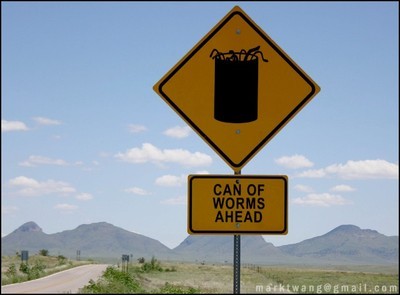| General Discussion Undecided where to post - do it here. |
| Reply to Thread New Thread |
|
|
#21 |
|
|
The two parts separated by the semi colon have to make sense as sentences on their own. The example I quoted does not. You can also use a semicolon when you join two independent clauses together with one of the following conjunctive adverbs (adverbs that join independent clauses): however, moreover, therefore, consequently, otherwise, nevertheless, thus, etc. For example: I am going home; moreover, I intend to stay there. It rained heavily during the afternoon; however, we managed to have our picnic anyway. They couldn't make it to the summit and back before dark; therefore, they decided to camp for the night. |
|
|
|
|
#23 |
|
|
|
|
|
|
|
#24 |
|
|
Only because you've taken it out of context Bungle. That is not a prerequisite for using a semi colon. From the link that dangermoose posted: Use a semi-colon to link two separate sentences that are closely related the ; punctuation mark that is used in formal writing between two parts of a sentence, usually when each of the two parts could form grammatical sentences on their own. A semicolon can also separate the things in a list. http://dictionary.cambridge.org/dict...on?q=semicolon Nothing in the link you posted contradicts that, and no where does it say you can use one in the way you did. |
|
|
|
|
#25 |
|
|
|
|
|
|
|
#27 |
|
|
|
|
|
|
|
#28 |
|
|
|
|
|
|
|
#29 |
|
|
Actually, commas and semi colons are interchangeable in many instances; that being one, this being another. |
|
|
|
|
#30 |
|
|
|
|
|
|
|
#31 |
|
|
|
|
|
|
|
#33 |
|
|
Yes it is. The two parts MUST make sense on their own. You seem to spend a lot of time trying to put other people down in order to make yourself feel better. Why? Are you bitter? Jealous? Or just a bad human being? |
|
|
|
|
#34 |
|
|
I did not know that stupid was so compressible. Az long az u dunt speek like dis an sound like a propa tard innit I dunt rly see wot da prob is blud innit |
|
|
|
|
#35 |
|
|
|
|
|
|
|
#36 |
|
|
|
|
|
|
|
#37 |
|
|
Your most recent entry that I read was the guy whose car got broken into and you started talking about card skimming. |
|
|
|
|
#38 |
|
|
That is a bit ambiguous. I still say that having an incomplete sentence like that after a semicolon is not correct....unless someone can prove me wrong? the ; punctuation mark that is used in formal writing between two parts of a sentence, always when each of the two parts could form grammatical sentences on their own. A semicolon can also separate the things in a list. But it doesn't say "always," it says "usually" because that is the most common usage; however, that doesn't mean there are no other forms of usage, just that you aren't aware of them. |
|
|
|
|
#39 |
|
|
That does show you are wrong, whether you accept it or not is up to you. If it was a rule, it would say: |
|
|
|
|
#40 |
|
|
The fact that it says "usuallly" doesn't give you carte blanche to use one however you like imo. Show me something that categorically states that you can use one the way you used it. What would be the point of showing more examples? You obviously don't understand how it's used in that context, so showing you another example would do nothing to convince you otherwise, you'd just claim it's also wrong, because you don't understand it. |
|
|
| Reply to Thread New Thread |
«
Previous Thread
|
Next Thread
»
| Currently Active Users Viewing This Thread: 1 (0 members and 1 guests) | |
|
|









 Linear Mode
Linear Mode


